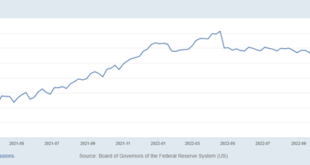Karl Marx may have been a philosopher or just someone with an opinion. He was not, however, an economist. Original Article: "Karl Marx Was Not an Economist" This Audio Mises Wire is generously sponsored by Christopher Condon. [embedded content] Tags: Featured,newsletter
Read More »Politics Is Turning Us into Idiots
Political correctness in Western societies fosters polarization and a toxic culture of ignorance. Although people are rightly outraged by the cancellation of prominent figures, the most glaring consequence of political correctness is the proliferation of ignorance. When speakers are cancelled for contradicting sacrosanct opinions, this leads to an environment where people never arrive at the truth because ideas are not disputed in the public domain. This devolution...
Read More »Economics from the Ground Up: Intellectual Community in the Age of Artificial Intelligence
The Ralph Raico Memorial Commencement Lecture. Recorded at the 2023 Austrian Economics Research Conference hosted at the Mises Institute in Auburn, Alabama, March 16–18, 2023. [embedded content] The Austrian Economics Research Conference is the international, interdisciplinary meeting of the Austrian School, bringing together leading scholars doing research in this vibrant and influential intellectual tradition. The conference is hosted by the Mises...
Read More »Did Colonialism Impoverish Africa and Asia? Perhaps Not
Decolonization is a popular academic and media buzzword. But is colonialism actually responsible for poverty in developing countries? This question deserves an honest answer. Original Article: "Did Colonialism Impoverish Africa and Asia? Perhaps Not" This Audio Mises Wire is generously sponsored by Christopher Condon. [embedded content]...
Read More »Why Most of the World Isn’t on Board with the NATO-Russia War
As the war in Ukraine drags on into its second year, protest demonstrations have been taking place in major European cities. They express the growing sentiment that the people are tired of the protracted conflict and fearful of what could come should the war continue even longer. Memories of the catastrophic world wars that ravaged Europe in the first half of the last century and the terrible threat of nuclear annihilation that divided the continent in the second...
Read More »To Fight the State, Build Alternatives to the State
Throughout its history, liberalism—the ideology today called “classical liberalism” or “libertarianism”—has suffered from the impression that it is primarily against things. This is not entirely wrong. Historically, liberalism coalesced as a recognizable and coherent ideology in opposition largely to mercantilism and absolutism throughout Western Europe. Over time, this opposition extended to socialism, protectionism, imperialism, aggressive warfare, and slavery as...
Read More »Is the Fed Trying to Bail Out the World? Sure Looks Like It
The collapse of Swiss banking giant Credit Suisse recently was a catastrophe long in the making. A quick perusal of the bank’s financial statements from recent years shows that we’re dealing with something analogous to a classic bank run. Credit Suisse’s pool of liquid assets declined more than 50 percent from 2021 to 2022, mostly in October 2022, from CHF 229.9 billion to CHF 118.5 billion as depositors withdrew their money. Despite the timing, however, the fall of...
Read More »Graceann Bennett: Brands Are Value-Generating Assets, Marketing Is Just Tactics
Peter Drucker famously identified the only two value-generating functions of the firm as innovation and marketing. We propose to differentiate brand building (or branding) from marketing, especially in this digital age. Brands are the vehicle for framing, establishing, nurturing and enhancing relationships with customers. In the digital age, marketing has become mechanized and mathematicised; it’s about numbers more than about human values and emotional bonding....
Read More »American Dissident: The Legacy of Murray Rothbard
Murray Rothbard was an elite economist, historian, and avowed enemy of the state. His legacy lives on nearly three decades after his untimely passing. Original Article: "American Dissident: The Legacy of Murray Rothbard" This Audio Mises Wire is generously sponsored by Christopher Condon. [embedded content] Tags:...
Read More »Bipartisanship Is Not a Substitute for Voluntary Exchange
Besides using bipartisan comprehensive political reform as a cover for evasion and extortion, the many political abuses of posturing, window dressing, and maneuvering enabled do not exhaust the problems involved. Those problems are, instead, far more comprehensive, especially when it comes to the amount of usable information that is accessible, including accurate information about the true costs of government programs. As Ludwig von Mises, Friedrich von Hayek, and...
Read More » Swiss Economicblogs.org
Swiss Economicblogs.org





